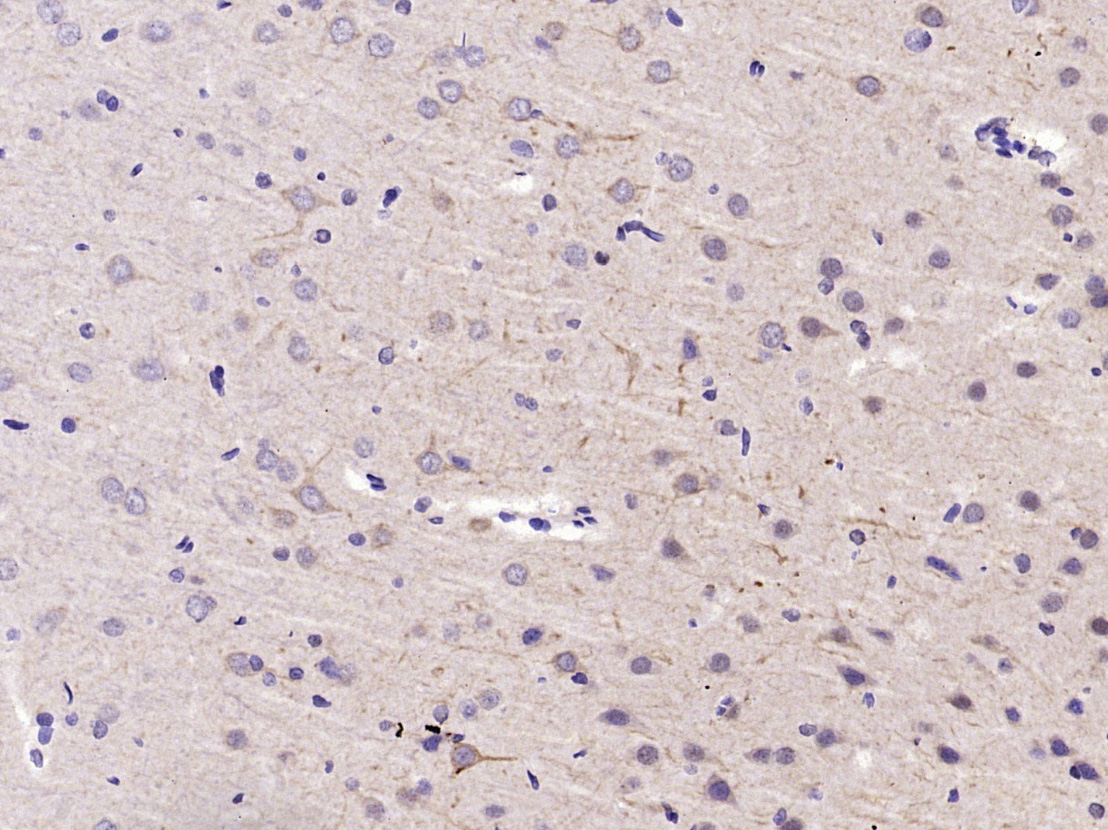
Paraformaldehyde-fixed, paraffin embedded Rat Brian; Antigen retrieval by boiling in sodium citrate buffer (pH6.0) for 15min; Block endogenous peroxidase by 3% hydrogen peroxide for 20 minutes; Blocking buffer (normal goat serum) at 37°C for 30min; Antibody incubation with HSP90 beta Polyclonal Antibody, Unconjugated (bs-0135R) at 1:400 overnight at 4°C, DAB staining.
HSP90 beta Polyclonal Antibody
BS-0135R
ApplicationsFlow Cytometry, ImmunoFluorescence, Western Blot, ELISA, ImmunoCytoChemistry, ImmunoHistoChemistry, ImmunoHistoChemistry Frozen, ImmunoHistoChemistry Paraffin
Product group Antibodies
ReactivityBovine, Canine, Chicken, Human, Mouse, Porcine, Rat
TargetHSP90AB1
Overview
- SupplierBioss
- Product NameHSP90 beta Polyclonal Antibody
- Delivery Days Customer16
- ApplicationsFlow Cytometry, ImmunoFluorescence, Western Blot, ELISA, ImmunoCytoChemistry, ImmunoHistoChemistry, ImmunoHistoChemistry Frozen, ImmunoHistoChemistry Paraffin
- Applications SupplierWB(1:300-5000), ELISA(1:500-1000), FCM(1:20-100), IHC-P(1:200-400), IHC-F(1:100-500), IF(IHC-P)(1:50-200), IF(IHC-F)(1:50-200), IF(ICC)(1:50-200)
- CertificationResearch Use Only
- ClonalityPolyclonal
- Concentration1 ug/ul
- ConjugateUnconjugated
- Gene ID3326
- Target nameHSP90AB1
- Target descriptionheat shock protein 90 alpha family class B member 1
- Target synonymsD6S182, HSP84, HSP90B, HSPC2, HSPCB, heat shock protein HSP 90-beta, HSP90-beta, heat shock 84 kDa, heat shock 90kD protein 1, beta, heat shock protein 90 kDa, heat shock protein 90kDa alpha (cytosolic), class B member 1, heat shock protein 90kDa alpha family class B member 1, heat shock protein family C member 3
- HostRabbit
- IsotypeIgG
- Protein IDP08238
- Protein NameHeat shock protein HSP 90-beta
- ReactivityBovine, Canine, Chicken, Human, Mouse, Porcine, Rat
- Storage Instruction-20°C
- UNSPSC41116161
References
- Effects of flavopiridol on critical regulation pathways of CD133high/CD44high lung cancer stem cells. Bozok Cetintas V et al., 2016 Oct, Medicine (Baltimore)Read this paper
- MUC1 protein induces urokinase-type plasminogen activator (uPA) by forming a complex with NF-kappaB p65 transcription factor and binding to the uPA promoter, leading to enhanced invasiveness of cancer cells. Mori Y et al., 2014 Dec 19, J Biol ChemRead this paper

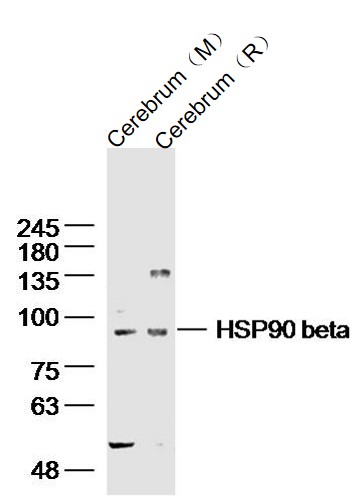
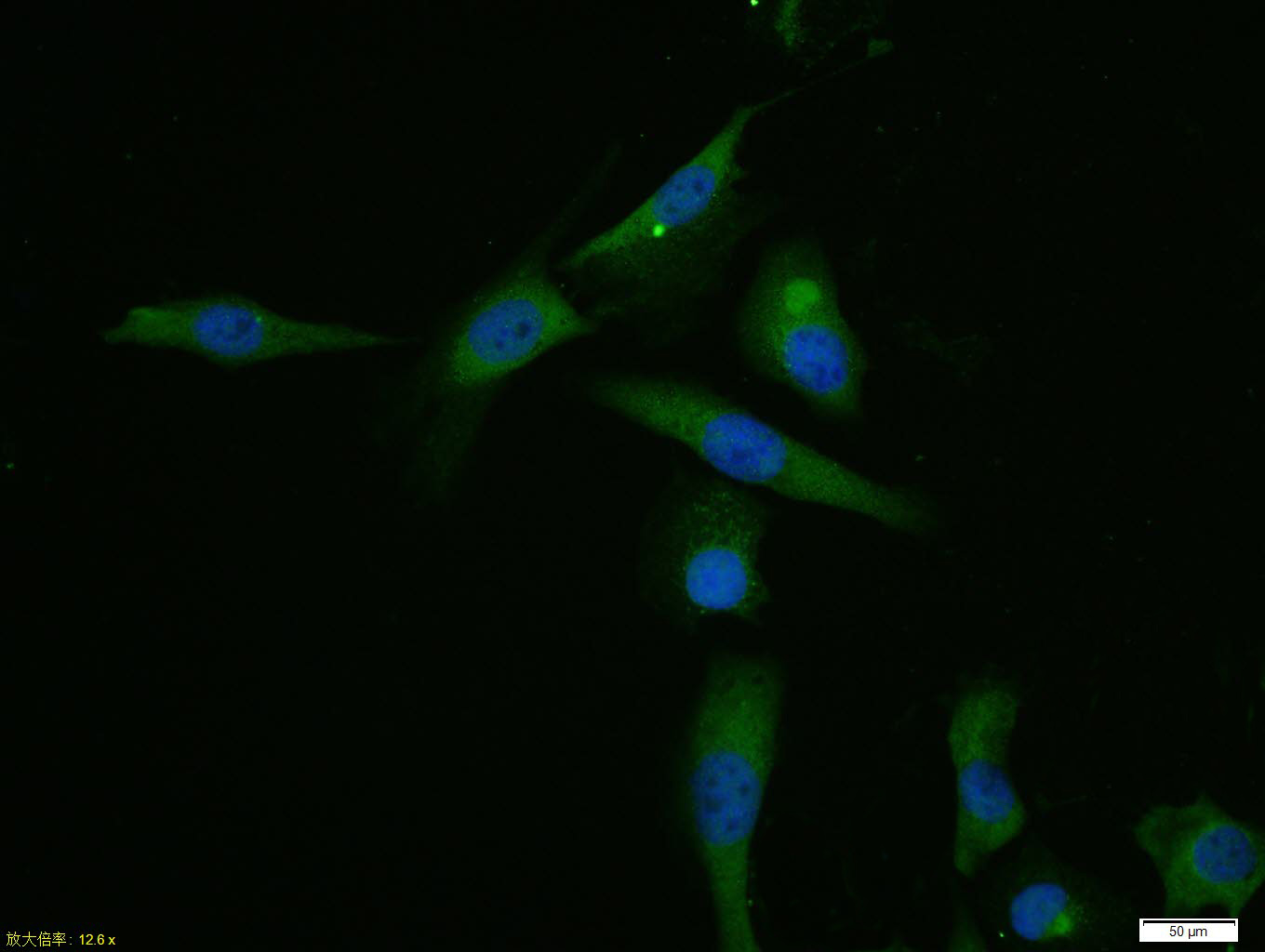
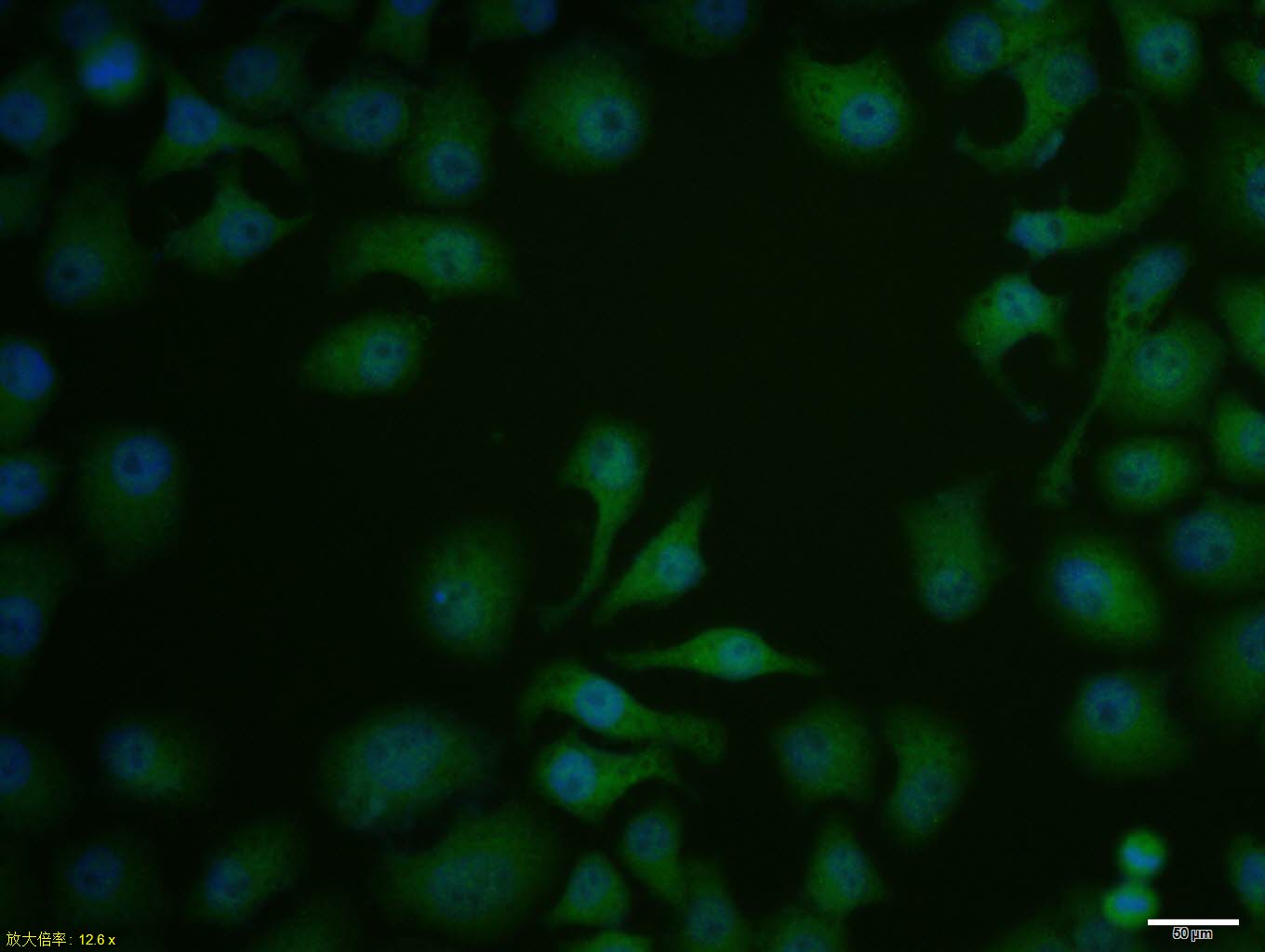

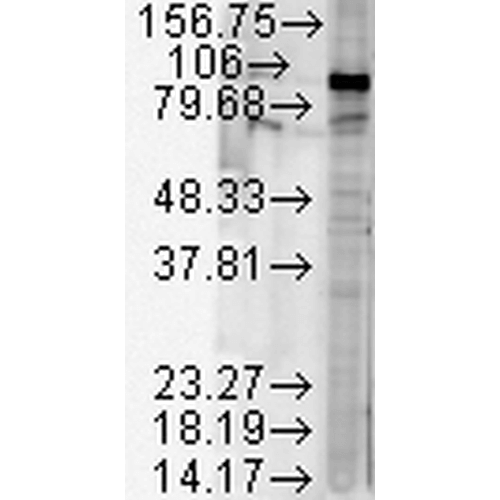

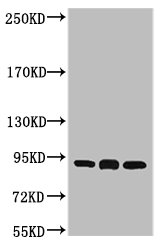


![Immunohistochemical analysis of paraffin-embedded zebrafish tissue, using Hsp90 beta antibody [N2C2], Internal (GTX101423) at 1:300 dilution.](https://www.genetex.com/upload/website/prouct_img/normal/GTX101423/GTX101423_39728_IHC_22111422_584.webp)